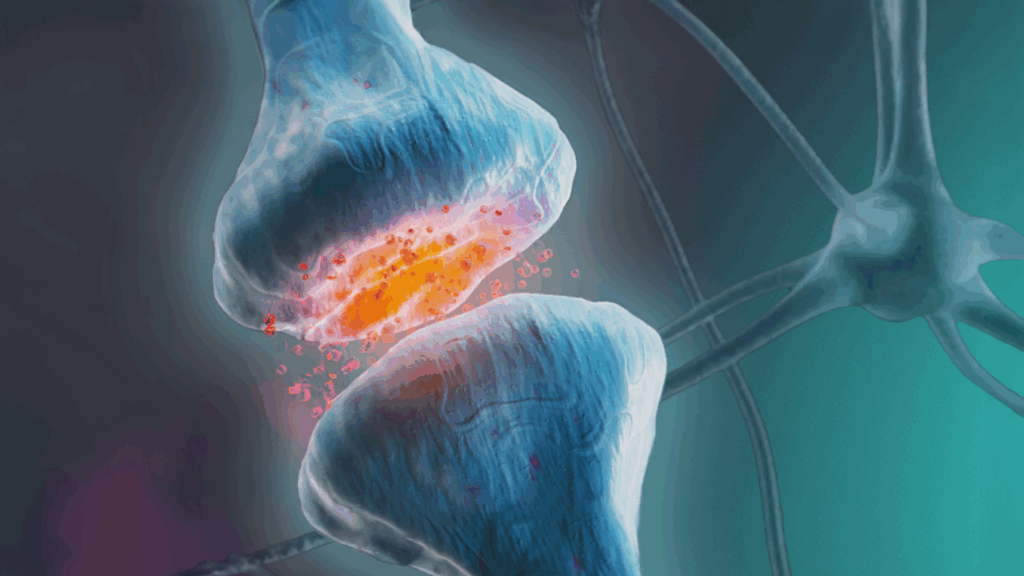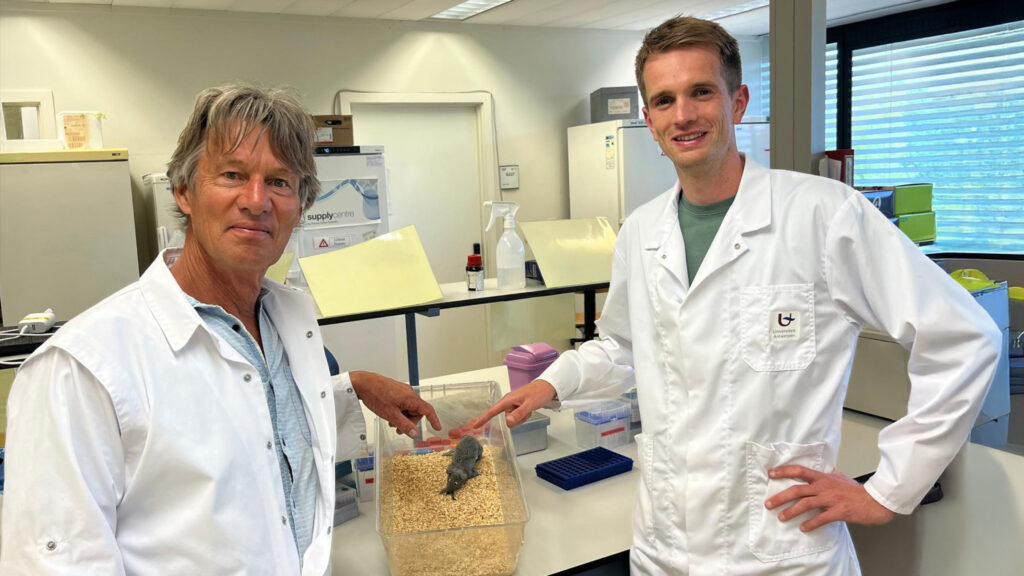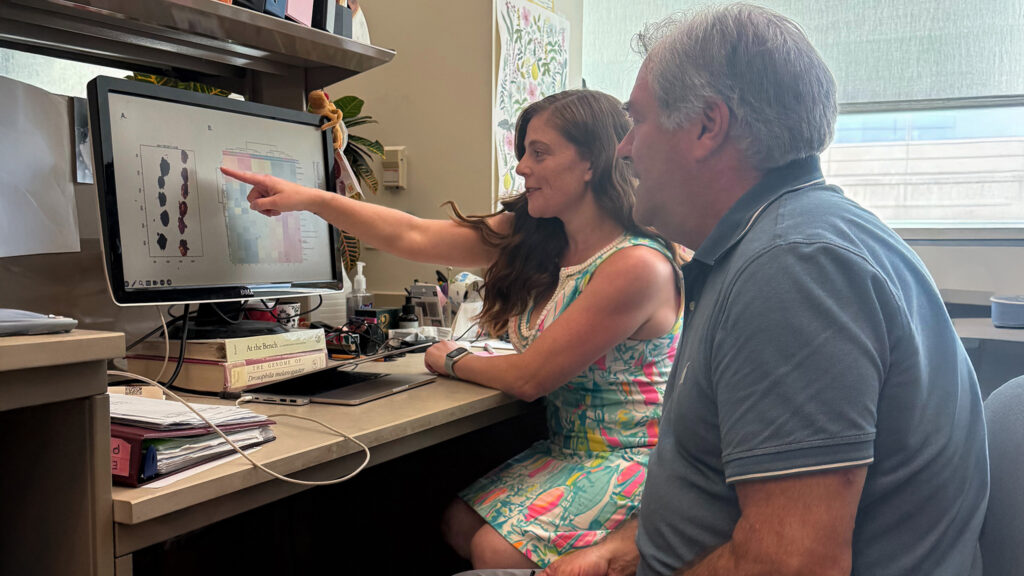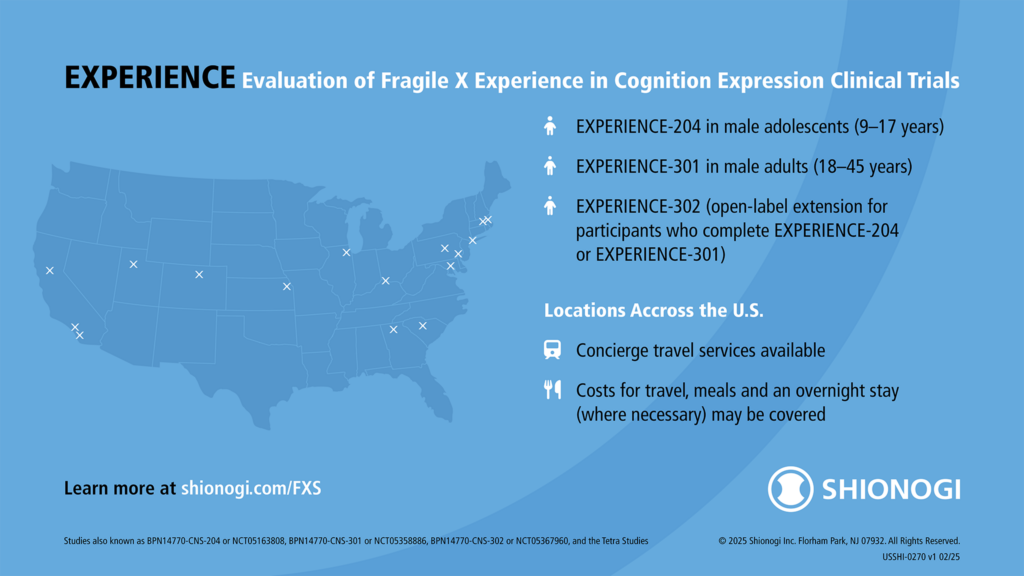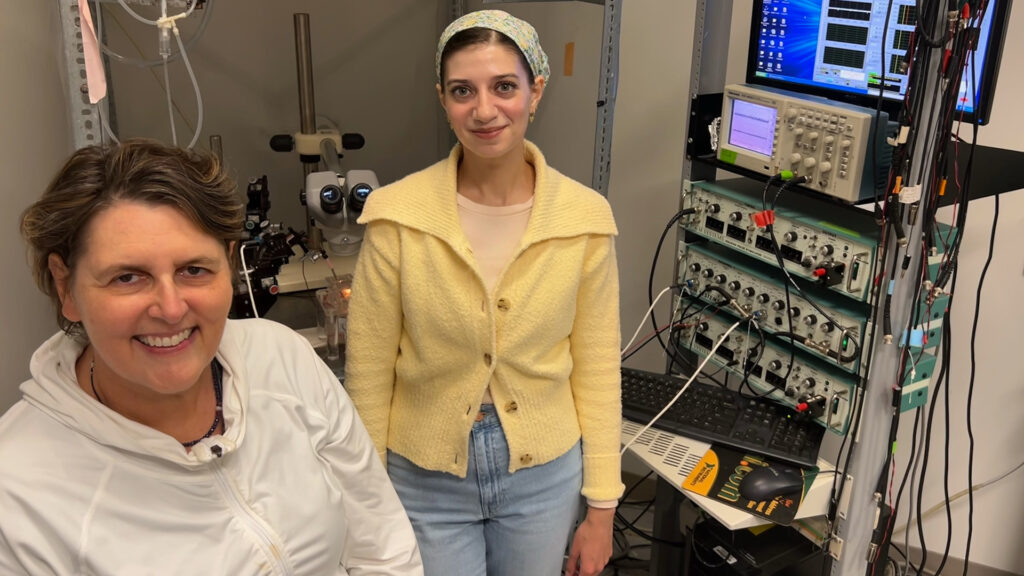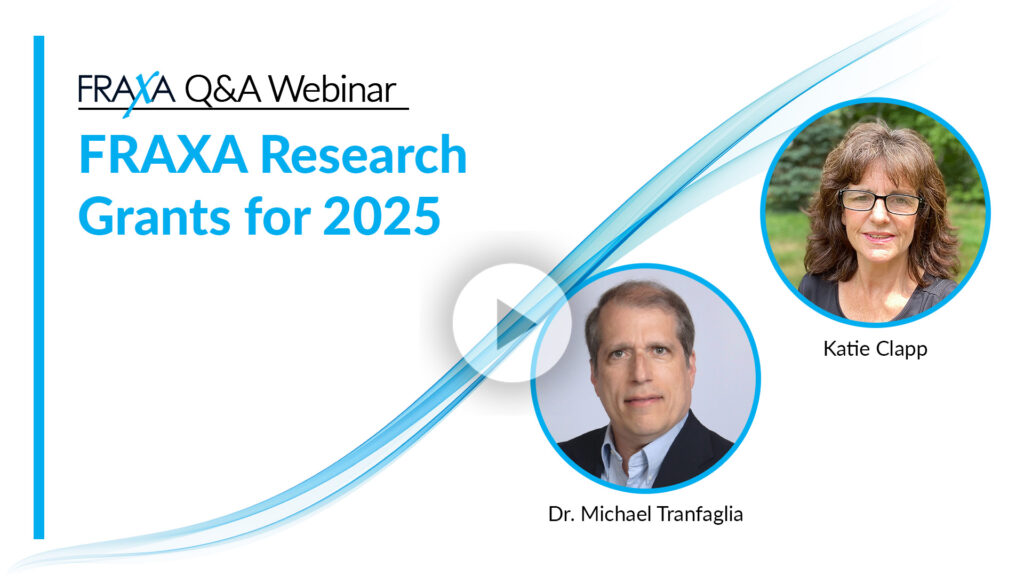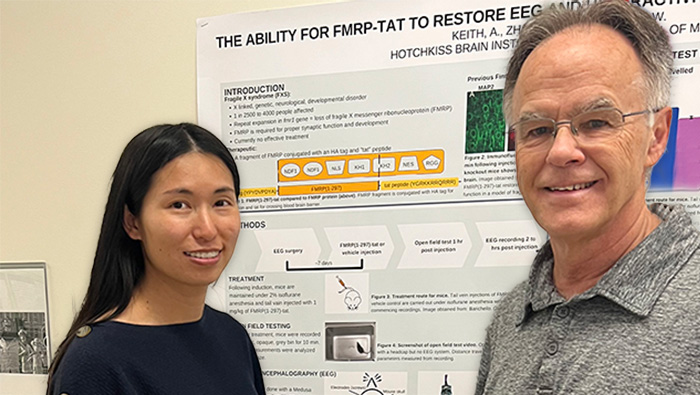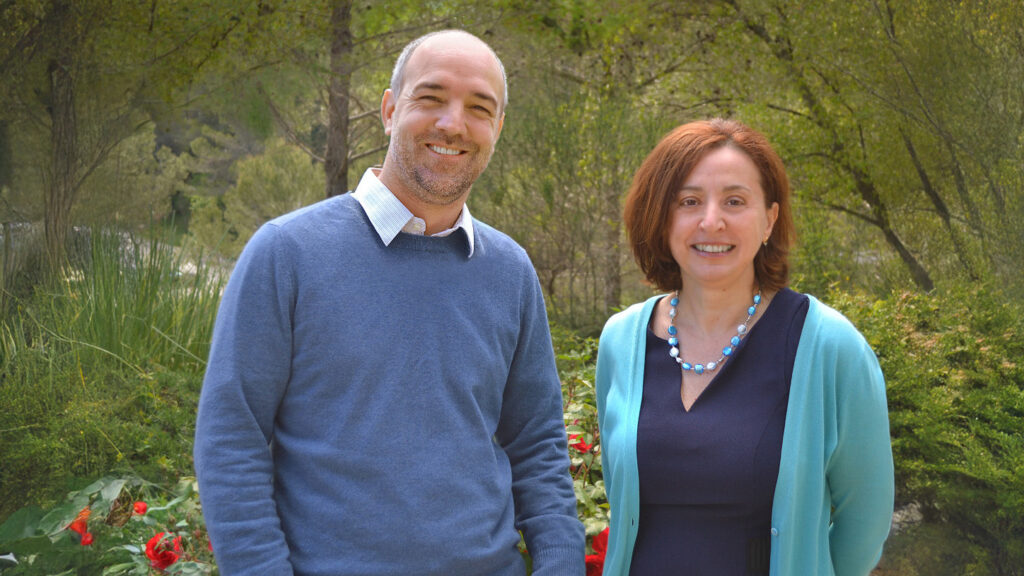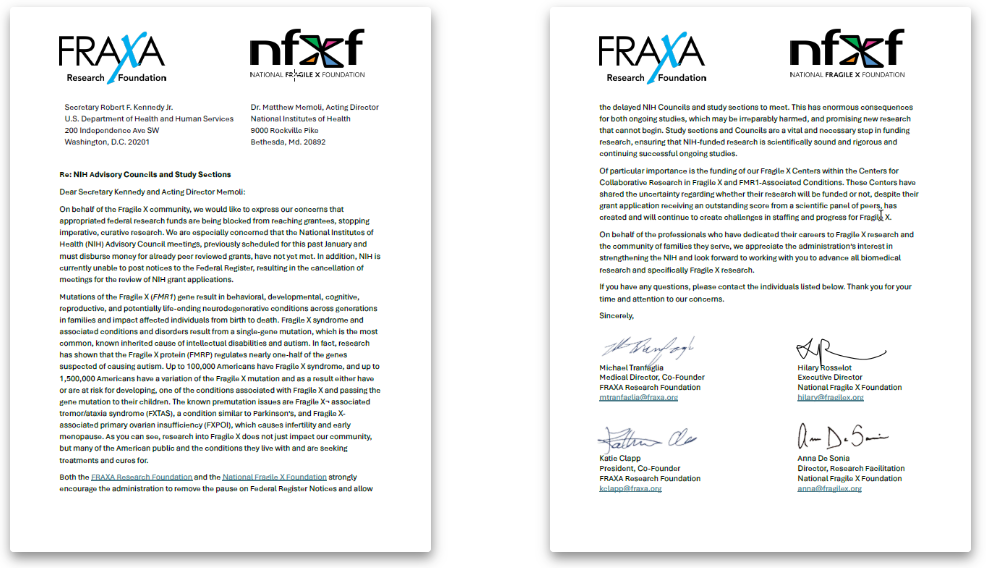Current Research Grants (38)
Select Grant Year Research Results (31) 2026 Grants (3) 2025 Grants (29) 2024 Grants (34) 2023 Grants (35) 2022 Grants (32) 2021 Grants (24) 2020 Grants (20) 2019 Grants (24) 2018 Grants (29) 2017 Grants (26) 2016 Grants (25) 2015 Grants (19) 2014 Grants (17) 2013 Grants (26) 2012 Grants (30) 2011 Grants (27) 2006-2010 Grants (80) 2001-2005 Grants (58) 1994-2000 Grants (28)
Select Researcher Abolghasemi, Armita (1) Acharya, Anirudh (1) Albeck, David (1) Alger, Bradley (1) Allada, Ravi (1) Allen, Nicola (1) Annear, Dale (2) Auerbach Benjamin (1) Bacigalupo, Juan (1) Bagni, Claudia (3) Bailey, Don (2) Banerjee, Probal (1) Banke, Tue (2) Bardoni, Barbara (6) Barnes, Stephanie (3) Bassell, Gary (3) Bauchwitz, Robert (1) Bear, Mark (16) Beasley, Lindsay (1) Bergdolt, Lara (1) Berry-Kravis, Elizabeth (17) Bettio, Luis (1) Bhakar, Asha (1) Bhattacharya, Aditi (2) Bhattacharyya, Anita (5) Bilousova, Tina (1) Binder, Devin (4) Bloom, David (1) Borreca, Antonella (4) Bosch, Miquel (1) Boussadia, Zaira (2) Brager, Darrin (1) Braun, Katarina (1) Brenman, Jay (1) Brennan, Francis (1) Briault, Sylvain (3) Broadie, Kendal (1) Brown, W Ted (1) Budylin, Tatyana (1) Caku, Artuela (2) Canal, Clinton E. (4) Cancedda, Laura (1) Carthew, Richard (1) Carullo, Paulina (2) Castren, Maija (1) Cea-Del Rio, Christian (1) Ceman, Stephanie (1) Chater, Dounia (1) Chattarji, Sumantra (3) Chen, Chloe (2) Cheng, Ning (1) Choi, Catherine (3) Christie, Brian (2) Ciranna, Lucia (1) Cline, Holly (1) Cogram, Patricia (8) Contractor, Anis (2) Corbin, Francois (3) Corbin, Joshua (1) Coulson, Rochelle (2) Cowan, Christopher (1) Cowan, Justin (1) Cox, Charles (1) Crnic, Linda (1) Croom, Katilynne (1) D’Ercole, Martina (1) Darnell, Jennifer (1) Darnell, Robert (1) Davidovic, Laetitia (1) Davidson, Beverly (1) de la Torre, Rafael (2) De Stefano, Lisa (1) de Vrij, Femke (1) Deacon, Robert (2) Dempsey, Graham (1) Deng, James (1) Deng, Pan-Yue (1) Denman, Robert (2) Di Marino, Daniele (1) Dierssen, Mara (2) Dijck, Anke Van (2) Dionne, Olivier (1) Disney, Matthew (1) Dobkin, Carl (1) Dockendorff, Thomas (1) Doering, Laurie (1) Dumontier, Dimitri (1) Dunaevsky, Anna (1) Dykens, Elisabeth (1) El Idrissi, Abdeslem (1) El-Osta, Assam (1) Elvassore, Nicola (1) Erickson, Craig (14) Ethell, Iryna (6) Fallon, Justin (2) Feng, Jia (1) Feng, Yue (1) Fink, James (1) Finucane, Brenda (1) Francesconi, Anna (1) Frick, Andreas (2) Galera-López, Lorena (1) Gan, Wen-Biao (2) Gantois, Ilse (2) Gao, Fen-Biao (1) Gao, Pan (1) Garkun, Yury (1) Gatto, Cheryl (1) Gelfand, Vladimir (1) Geoffroy, Andrea (1) Germain, Noelle (1) Giangrande, Angela (1) Gibson, Jay (2) Goncalves, Tiago (1) Greenough, William (1) Grokoski, Kamila Castro (1) Gross, Christina (2) Guiotto, Annamaria (1) Guo, Ziyuan (1) Gurney, Mark (2) Gutierrez, Alejandra (1) Ha, Seong Eon (1) Haenfler, Jill (1) Hagerman, Paul (1) Hagerman, Randi (2) Haggarty, Stephen (1) Hassan, Bassem (1) He, Qionger (2) Heaney, Chelcie (1) Hessl, David (1) Higashimori, Haruki (1) Hogan, Carolyn Ann (1) Holley, Andrew (1) Hoogeveen, Andre (1) Huber, Kimberly (8) Huganier, Richard (1) Huntsman, Molly (2) Inamdar, Manasi (1) Ingolia, Nicholas (1) Jaffrey, Samie (3) Jiang, Yong-Hui (1) Jin, Peng (5) Johnson-Glenberg, Mina (1) Johnston, Daniel (2) Jonak, Carrie (1) Jonas, Elizabeth (3) Jongens, Tom (4) Jope, Richard (1) Joyce, Karen (1) Kaczmarek, Leonard (7) Kandel, Eric (1) Kanellpoulos, Alexandros (1) Kang, Seo-Jun (1) Kang, Yunhee (2) Kaufmann, Walter (1) Khandjian, Edouard (1) Kim, Hwan (1) Kim, J. Wren (1) Kind, Peter (2) Kindler, Stephan (1) King, Margaret (2) Klann, Eric (2) Klug, Achim (1) Klyachko, Vitaly (3) Koeglsperger, Thomas (1) Kooy, Frank (8) Kornfeld-Sylla, Sara (1) Kosti, Adam (1) Kourdougli Nazim (1) Kreienkamp, Hans-Jurgen (1) Krzisch Marine Anais (1) Kumar, Vikas (1) Kumar, Vipendra (1) Kumari, Daman (1) Kurosaki, Tatsuaki (3) Larson, John (1) Lauder, Jean (1) Lauterborn, Julie (1) LeDoux, Joseph (1) Lee, Hungoo (2) Lee, Hye Young (1) Lee, Jeannie (10) Lepage, Jean-Francois (2) Levy, Richard (1) Li, Wenqi (1) Li, Xuekun (1) Licznerski, Pawel (1) Lieberman, David (1) Lombroso, Paul (1) Lovelace, Jonny (2) Lu, Lu (1) Mack, Kenneth (1) Malter, James (1) Mandel, Jean-Louis (1) Mansvelder, Huibert (1) Manzoni, Olivier (1) Maquat, Lynne (4) Marro, Samuele (1) Marsillo, Alexandra (1) Martin, Stéphane (1) Martire, Alberto (4) Mato Santos, Susana (1) Maurin, Thomas (3) McBride, Sean (4) McCamphill, Patrick (3) McCullagh, Elizabeth (1) McDougle, Christopher (1) McKenna, Mary (1) Meffert, Mollie (1) Men, Yuqin (1) Mihailescu, Mihaela (1) Moine, Herve (3) Morishita, Hirofumi (1) Morris, David (1) Moses, Kevin (1) Mourrain, Philippe Jacques (2) Moy, Sheryl (1) Muddashetty, Ravi (1) Murgia, Alessandra (1) Nelson, Charles A. (3) Nelson, David (3) Neri, Giovanni (3) Njem, Nadine (1) O'Malley, Karen (1) O’Brien, Alana (1) O’Donnell, Cian (1) Oh, Ji-eun (2) Oliviera Laura (1) Oostra, Ben (2) Osterweil, Emily (6) Ozaita, Andres (2) Paribello, Carlo (1) Paylor, Richard (1) Pedapati, Ernest (2) Pepper, Anita (1) Pichon, Jacques (2) Pirbhoy, Patricia (4) Portera-Cailliau, Carlos (2) Pouchelon, Gabrielle (1) Pouladi, Mahmoud (2) Pronot, Marie (1) Protic, Dragana (1) Raab-Graham, Kimberly (1) Rattazzi, Mario (1) Razak, Khaleel (7) Regan, Lynne (1) Reis, Surya (1) Renwick, Neil (1) Reynolds, Kathryn (1) Ribecco, Carmela (1) Richards, Robert (1) Richter, Joel (10) Romagnoli, Alice (1) Rotman, Ziv (1) Ruppert, Kathryn (1) Saraf, Tanishka (1) Sawacha, Zimi (1) Schaefer, Tori (1) Schmitt, Lauren (1) Scott, Angela (1) Segal, Menahem (1) Sejnowski, Terrence (1) Senter, Rebecca (2) Shah, Sneha (8) Shen, Minjie (1) Siegel, Jennifer (1) Silva, Alcino (1) Singh, Aditi (1) Siomi, Haruhiko (1) Siomi, Mikko (1) Sirois, Carissa (1) Skoulakis, Efthimios (1) Smith, Carolyn B. (4) Smith, Elizabeth (1) Smith, Laura N. (1) Smith, Stephen E.P. (1) Soderling, Scott (1) Sonenberg, Nahum (6) Spolaor, Fabiola (1) Stackhouse, Tracy (1) Stamenkovic, Vera (1) Stanfield, Andrew (1) Steward, Oswald (3) Svendsen, Clive (1) Svoboda, Karel (2) Tang, Weiping (1) Tartaglia, Nicole (1) Tartakoff, Alan (1) Tejada-Simons, MariVi (1) Tempio, Alessandra (1) Thacker, Jonathan (1) Tiedge, Henri (1) Todd, Peter (9) Tonegawa, Susumu (1) Toth, Miklos (2) Tran, Tien Phuoc (1) Tremblay, Marie-Eve (1) Tsai, Nien-Pei (2) Tsai, Yuan-Chen (1) Turner, Raymond (3) Tuschl, Thomas (1) Usdin, Karen (1) Utami, Kagistia (1) van der Lei, Mathijs (3) Vanderklish, Peter (7) Wang, Eric (1) Wang, Gordon (2) Wang, Hongbing (1) Warren, Stephen (2) Watanabe, Momoko (1) Weiler, Ivan Jeanne (1) Weisz, Eliana D. (1) Wen, Zhexing (4) Wernig, Marius (1) Westmark, Cara (5) Whitehead, Kathryn (1) Wilhelm, Michael (1) Wilkinson, Carol (4) Willemsen, Rob (1) Williams, Leena E. (1) Winograd, Claudia (1) Wong, Robert (1) Worley, Paul (1) Wright, Damien (1) Xu, Jie (1) Xu, Zhiyan (1) Yalan, Zhang (1) Yang, Wang-Yong (1) Yang, Yongjie (2) Yerneni, Saigopalakrishna (1) Yin, Jerry (1) Yrigollen, Carolyn (1) Yuskaitis, Christopher (1) Zang, Tong (1) Zhan, Xiaoqin (3) Zhao, Xinyu (7) Zhong, Jun (1) Zhu, Julius (2) Zoupi, Lida (1) Zukin, Suzanne (2)
Select Research Type Biomarkers (32) Clinical (26) Curative Therapies (25) Disease Mechanisms (147) Drug Repurposing (26) Resources (4) Treatment Targets (149)
Select Organization Agency for Science, Technology and Research (A*STAR) (1) Albert Einstein College of Medicine (3) Baylor College of Medicine (3) Boston Children's Hospital (2) Brown University (2) Carnegie Mellon University (1) Case Western Reserve University (1) Centre for Genomic Regulation (1) Children's Hospital of Philadelphia (CHOP) (1) Children's National Medical Center (1) Chinese Academy of Science (1) Cincinnati Children's Hospital (7) CNR - Institute of Neuroscience (1) CNRS Bordeaux (1) CNRS Valbonne (1) Cold Spring Harbor Laboratory (5) College of Staten Island (1) Columbia University (2) Cornell University (6) Drexel University (1) Duke University (1) Duquesne University (1) Emory University (8) Erasmus University Rotterdam (4) Flanders University (1) Geisinger Health System (1) Harvard University (7) Icahn School of Medicine at Mount Sinai (1) IGBMC. France (1) INSERM Valbonne, France (2) Institut de Pharmacologie Moléculaire et Cellulaire (1) Institute of Cellular and Developmental Biology (1) ISERM Marseille, France (1) Italian Institute of Technology (1) Italian National Institute of Health (2) John Hopkins University (2) Laval University, Quebec (1) Ludwig Maximilian University Medical School (1) Massachusetts General Hospital (3) Massachusetts Institute of Technology (MIT) (11) Mayo Clinic (1) McGill University (5) Mclean Hospital (1) McMaster University, Canada (1) Mercer University (3) Michigan State University (1) National Center for Biological Sciences (1) National Institute of Diabetes and Digestive and Kidney Diseases (NIDDK) (1) National Institute of Mental Health (2) Neurocentre Magendie, France (2) New York State Institute for Basic Research (5) New York University (4) Northwestern University (4) Peter MacCallum Cancer Institute, Australia (1) Polytechnic University of Marche (1) Quiver Bioscience (1) Rockefeller University (2) Rowan University (2) Rush University Medical Center (8) Salk Institute (2) Scripps Research Institute (4) Seattle Children’s Research Institute (1) Special Hospital for Cerebral Palsy and Developmental Neurology, Serbia (1) Spinogenix, Inc. (1) Stanford University (4) State University of New York (2) Surrey Place Centre Toronto (1) Tokushima University, Japan (1) Tufts University School of Medicine (2) Universita Cattolica del S Cuore (3) Universita di Catania, Italy (1) Universite Louis Pasteur (1) University of Adelaide, Australia (1) University of Amsterdam, Netherlands (1) University of Antwerp, Belgium (6) University of British Columbia (1) University of Calgary, Canada (3) University of California at Berkeley (1) University of California at Davis (3) University of California at Los Angeles (3) University of California at Riverside (9) University of California at San Francisco (1) University of California, Irvine (4) University of Chile (2) University of Colorado (4) University of Edinburgh, Scotland (4) University of Florida (2) University of Hamburg, Germany (1) University of Helsinki Finland (1) University of Houston (1) University of Illinois at Urbana-Champaign (6) University of Illinois Chicago (1) University of Indiana (1) University of Leeds (1) University of Maryland (2) University of Massachusetts (6) University of Miami (1) University of Michigan (3) University of Nebraska Medical Center (1) University of North Carolina (4) University of Orleans, France (1) University of Oxford (1) University of Padua (2) University of Pennsylvania (2) University of Rochester (3) University of Sherbrooke, Canada (5) University of Strasbourg, France (1) University of Tennessee (1) University of Texas at Austin (2) University of Texas at San Antonio (1) University of Texas at Southwestern (7) University of Victoria (2) University of Virginia (1) University of Washington (2) University of Wisconsin (14) University Pompeu Fabra (2) Vanderbilt University (1) VIB, Leuven, Belgium (1) Wake Forest School of Medicine (1) Washington University (2) Weizmann Institute, Germany (1) Yale University (9)



